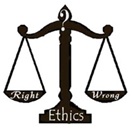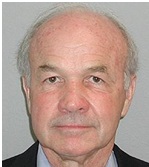|
 |
|
 |
Business ethics
Business ethics is… An organization doing what is right in the eyes of its employees and people outside (e. g. customers). So an organization must serve the needs of these different groups with honesty, fairness, trust and compassion. Conscience is important, telling employees what's right or wrong. Ethics can make money (profit through principle)...
How can business ethics increase profit?
1. Motivated employees People like an ethical organization more, and so work harder for it.
2. Satisfied customers Some people prefer to buy from ethical companies e.g. Fairtrade coffee from growers who aren’t exploited.
3. Less interference from pressure groups (e.g. Greenpeace) and government (because they like what the company is doing).
4. Better corporate image and reputation People like nice companies e.g. Virgin providing planes free for transporting food to Ethiopia during Live Aid in 1985 (a fund raising concert) .
How to be an ethical organisation
1. Knowing what’s right This is linked to duty to do what you think should be done. So any decision or strategy should ask:
But what is right or wrong may not be clear... You may have to choose between two right things or the lesser of two evils For example, if you don’t bribe people in a country where it's expected, you might lose the contract, and people’s jobs at home.
2. Corporate culture and codes of practice The organisation must:
That’s why codes of practice are helpful, telling employees what they should do and not do.
3. Recruit ethical people You can’t have an ethical organization without ethical employees. Ask them about their values and beliefs at interview.
4. Doing what’s right To find out what is right, look at:
But some employees can still be unethical because of:
Ethical organisations do what they say and live by their principles.
5. Listening to employees An organization should listen to and act upon the ethical concerns of employees, particularly if it has done
something that might seriously harm employees or the public. If the organization doesn’t, employees may be forced to go public and become whistle-blowers like Frank Serpico (pictured right), publicizing police corruption in New York. Punishing them sends a bad ethical message to other employees.
6. Reflection and learning Employees need time to reflect on what is right and learn from their experience. This is difficult when they:
That’s why balance between work and leisure is important for business ethics. Choosing between the family and organization is a serious ethical problem for employees.
Key quotes explained
“I believe in God, family and McDonald’s, and in the office that order is reversed” Ray Kroc(founder of McDonald’s, pictured right). Managers may sacrifice their ethics for success and profit and lead a double life, being nicer at home than at work. This was confirmed by research in America by Albert Carr. “Better a little with righteousness than great revenues without right”, the Book of Proverbs says in the Bible.
“Ethics in business (or anywhere else) starts with a person”, - Bob Greenleaf (American management writer, pictured right). People decide what is ethical by listening to their conscience and saving their soul. Greed is the biggest temptation in business . “The love of money is the root of all evil”, St. Paul wrote.
“Few things are totally good or totally evil”, - Abraham Lincoln (American president, pictured right) You may have to do something that isn’t totally good e.g. fire people to keep a company in business. There is also good in everything, even in something evil.
“The market has no morality”, - Michael Heseltine (British politician, pictured right). Markets don’t have morals. But people do and they must act with honesty and integrity. “No legacy is so rich as honesty”, Mariana says in Shakespeare’s All’s Well That Ends Well.
Best books and articles
Bowen McCoy, The Parable of the Sadhu (1983 Harvard
Business Review article) An expedition, including the author, Bowen McCoy (pictured right), and his friend Stephen, decided to leave a sadhu, an Indian holy man, at 15,000 feet to fend for himself, rather than take him to safety, because it would have jeopardized the expedition. But should the sadhu have come first, as Stephen argued? Kenneth Blanchard (pictured) and Norman Vincent Peale (pictured right below), The Power of Ethical Management (1988) Ethical management needs the 5 P’s:
1. Purpose and pride Doing something worthwhile.
2. Patience and persistence Keep on trying to do what’s right.
3. Perspective Knowing how important something is. Principles are most important.
Laura Nash (pictured right), Good Intentions Aside (1990) Organizations should have a “Covenantal Business Ethic” that emphasizes service to others and respect for people as human beings. This not only gets the best from people but also boosts their self-esteem. Key questions to assess ethical issues are:
Max De Pree, Leadership is an Art (1989) Like Laura Nash, De Pree (pictured right) supports the importance of covenantal
relationships in which the organization and its employees accept mutual
responsibilities towards each other like respect, trust and understanding.
Randy Komisar (pictured right) and Kent Lineback (pictured right below) , The Monk and the Riddle (2000) We should be missionaries (driven by virtue) not mercenaries (driven by power and
money). |
|
|
||
|
|
|
||
|
||
| Copyright © wisdomtowin.com All Rights Reserved | ||
|


















